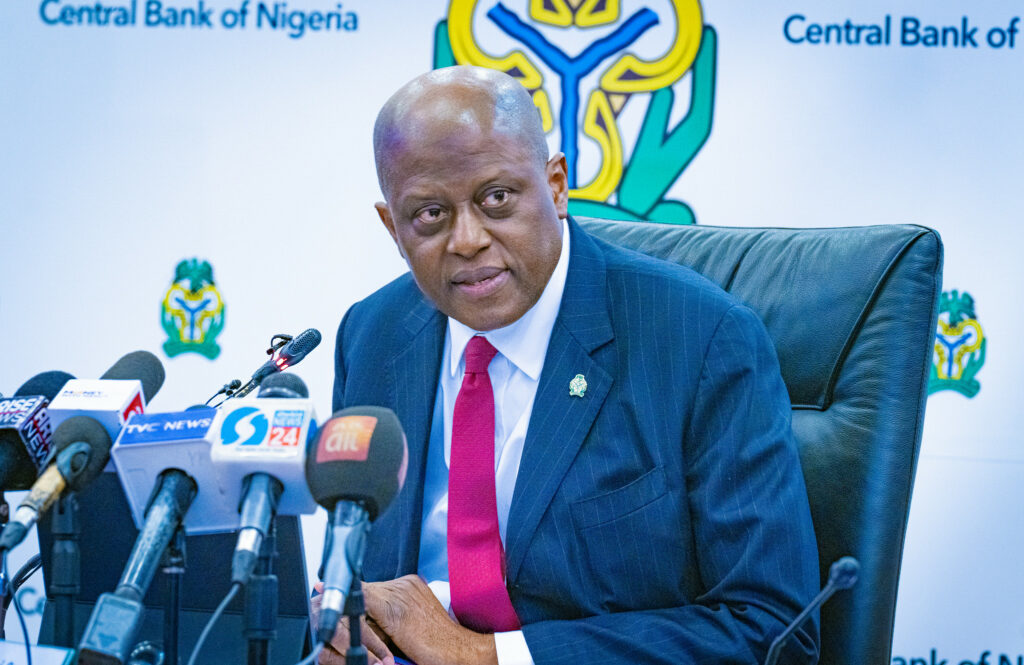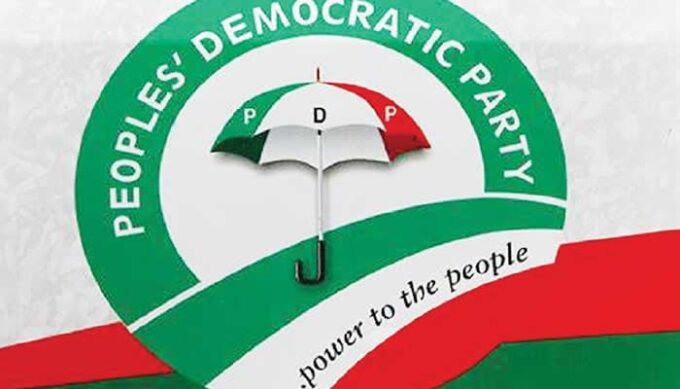•CBN keeps lending rate at 27.5% to tame rising costs
By Chinwendu Obienyi and Adanna Nnamani, (Abuja)
The Governor, Central Bank of Nigeria (CBN), Olayemi Cardoso, on Tuesday, disclosed that eight deposit money banks have already surpassed the new minimum capital requirement under the ongoing recapitalisation exercise.
The apex bank also retained all key monetary policy parameters, leaving the Monetary Policy Rate (MPR) unchanged at 27.5 per cent.
The Committee also left the asymmetric corridor around the MPR at +500/-100 basis points, kept the Cash Reserve Ratio, CRR, for deposit money banks at 15 per cent, and retained the liquidity ratio at 30 per cent.
These come as a member of the CBN Monetary Policy Committee (MPC), Mustapha Akinkunmi, revealed that at least 11 commercial banks exceeded CBN’s regulatory ceiling for non-performing loans (NPLs) as of April 2025. This signals rising credit risk within the financial system.
The revelation came from his personal statement published after the 300th MPC meeting held in May.
Cardoso made the disclosure of the eight banks recapitalisation target on Tuesday in Abuja during a press briefing after the Monetary Policy Committee (MPC) meeting.
According to him, the development shows strong investor confidence in Nigeria’s banking sector and signals the resilience of the financial system despite global and domestic challenges.
He also revealed that one Nigerian bank recently raised a substantial amount of capital on the London Stock Exchange, an indication that international investors view the country’s financial institutions as stable and attractive.
The CBN governor reiterated that the recapitalisation exercise is in line with global best practices and will strengthen the resilience of Nigerian banks. He noted that temporary regulatory forbearances granted to some banks during the COVID-19 pandemic are consistent with Basel guidelines.
Cardoso assured that the apex bank will continue to play its regulatory role to ensure that financial institutions remain stable, strong, and transparent.
He said: “Already, eight banks have surpassed the minimum required.
“One bank has raised a significant amount of money on the London Stock Exchange. That clearly is a reflection of the way that the international investors view the banking system.
“Really and truly,I must say, there is a lot of interest from the international community on putting money on the Nigerian financial system.
“The key thing is that we as regulators will continue to play our parts to ensure that the system and the players and the actors continue to do what we are doing, creating resilience, creating buffers, and of course, playing by the rules.
“The steps we have taken are temporary ones and with respect to forbearances that you referred to, they are all temporary ones and really and truly are in line with Basel requirements all over the world.
“We have asked some of the banks to ensure that the provisioning strategies are in line with what should help them to create the offers, to ensure that dividends are not paid and that investments are kept in advance for a certain period of time. This is normal. There is nothing new about that. Fairly normal. And it is well in line with our oversight functions.
“The numbers should, not only with us but even with the banking system, begin to speak for themselves. The capital advocacy ratio, 13 per cent, and of course the NPLs exceed the 50 per cent. Family PC levels are 50 per cent and NPLs are at 5 per cent.
“Our banking system is ready and truly come of age and I believe it’s fit for purpose. And we just can only get better. That is really my view”.
On the 11 banks that breached NPL loan cap, the MPC member, Akinkunmi, noted that the banking sector’s NPL ratio rose to 5.62%, breaching the CBN’s prudential benchmark of 5%.
“The Non-Performing Loans (NPL) ratio rose to 5.62% in April 2025, exceeding the 5% prudential threshold, largely due to loan reclassifications following annual risk assessments,” Akinkunmi stated.
“11 banks were above the NPL limit, up from 6 a year earlier.”
Although he did not name the affected banks, the rise in the number of institutions breaching the limit—from six last year to eleven—raises fresh concerns about loan performance across the industry.
Akinkunmi noted that the increase was mainly triggered by annual credit risk reviews, which led to several loans being downgraded. He suggested that the CBN might consider temporary forbearance measures, especially for sectors like oil and gas that are vulnerable to global shocks.
“The CBN may consider temporary forbearance measures for sectors such as oil and gas, which are exposed to external shocks, to avoid systemic risk,” he said.
Despite these concerns, Akinkunmi reassured stakeholders that Nigeria’s banking sector remains on solid footing. He cited a significant improvement in key financial indicators, especially the Capital Adequacy Ratio (CAR)—a core measure of financial strength. The CAR climbed from 10.81% in April 2024 to 15.55% in April 2025, reflecting progress under the CBN’s ongoing recapitalisation push.
“The increase in CAR… is largely attributed to ongoing bank recapitalization efforts. So far, 19 banks have raised additional capital, and 7 have met new requirements. However, Nigeria’s CAR still lags international benchmarks, necessitating further strengthening,” he said.
Akinkunmi also noted improvements in liquidity and profitability. The Liquidity Ratio rose from 50.6% in January to 55.4% in March, while Net Interest Margin surged to 67.0% in April, helped by falling operating costs. Additionally, total bank assets expanded by N30.83 trillion (22.35%) year-on-year, deposits grew by N19.93 trillion (23.58%), and credit to the economy increased by N5.99 trillion (10.89%).
Between March and April 2025 alone, banks issued 19,504 new loans worth N417.1 billion, showing continued confidence in financial intermediation despite macroeconomic uncertainties.
Offering further clarity, the CBN’s Deputy Governor of Economic Policy, Muhammad Sani Abdullahi, emphasized that the NPL uptick was not due to a systemic collapse in loan quality.
“The banking sector remains robust, continuing to support economic activities… The rise in NPLs is attributable to the reclassification of loans during the annual risk assets examination,” he explained. “Notwithstanding, the Central Bank remains vigilant in ensuring the banking system’s stability and soundness.”
In a move to bolster financial resilience, the CBN has issued a directive suspending dividend payouts, executive bonuses, and offshore investments for banks currently under regulatory forbearance—a policy that allows distressed institutions temporary relief on credit exposure and Single Obligor Limit (SOL) violations.
According to the CBN, this directive is part of a broader strategy to strengthen capital buffers, improve balance sheet resilience, and encourage responsible capital retention across the banking sector.By Chinwendu Obienyi and Adanna Nnamani, (Abuja)

















Leave a comment